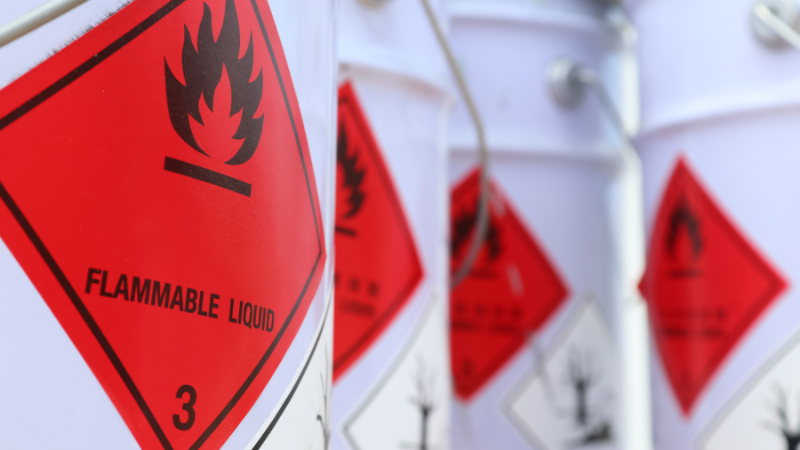Have you ever wondered if your favorite cologne has the potential to catch fire? The question may seem odd, but understanding whether colognes are flammable is crucial in ensuring the safety of those who love their fragrances. As experienced cologne reviewers, we have come across this query more often than you would think. In this article, we aim to address this important aspect of cologne safety by providing a reasonably cautious and informative perspective.
Colognes, like perfumes and other fragrances, typically contain alcohol, water, and fragrant oils as their primary ingredients. Alcohol, which is most commonly ethanol or isopropyl alcohol, acts as a solvent, dissolving and carrying the essential oils to create a well-blended scent. It is because of the alcohol content that colognes can be flammable. However, it is crucial to note that the flammability of a cologne is largely dependent on its alcohol concentration.

While some may find this alarming, it is essential to focus on the benefits offered by the alcohol content in colognes. The presence of alcohol makes it possible for fragrances to evaporate on the skin, releasing their divine scents for us to enjoy. The trick is to handle, store, and transport colognes safely, which means keeping them away from open flames and extreme heat sources, to keep the risk of fire accidents minimal. And now that you know the facts, you can continue enjoying the captivating world of colognes while being cautious and responsible.
Why Are Cologne Flammable
Understanding Flammability
Why is cologne flammable? It’s all about the components inside it. Most colognes and perfumes contain a high percentage of alcohol, which acts as a carrier and solvent. This alcohol, specifically ethanol or ethyl alcohol, is responsible for making the product easily ignitable. Alcohol has a low flash point, meaning it is highly susceptible to ignition from heat sources. This flammability isn’t always a major concern, but it’s something you should be aware of, especially when storing or using colognes around open flames or heat sources.
Let’s take a closer look at some important aspects of cologne flammability, shall we?
Components Contributing to Risk
We have compiled a list of components that contribute to the flammability of colognes:
- Alcohol: The primary reason for colognes being flammable is the alcohol content. Alcohol acts as a preservative, solvent, and carrier for the fragrances. Its low flash point makes it easily ignitable.
- Essential oils: Essential oils are natural or synthetic oils added to colognes to give them their unique scents. Some essential oils are flammable and may contribute to the overall fire risk.
- Fragrances: Fragrances are a key component in colognes, giving them their signature scent. These fragrances often contain chemicals that are potentially ignitable or combustible, increasing the overall fire hazard of the product.
- Other additives: Some other additives in colognes, such as resins and aromatic chemicals, can increase their flammability or combustibility.
We hope that with this information, you’ll be more cautious when handling colognes. By being aware of the components and their flammability properties, you can prioritize safety when applying or storing your colognes. Remember, with the right knowledge and proper handling, you can enjoy your favorite scents without compromising safety.

What Not to Do and Things to Look Out For
Storage and Preservation
Perfumes and colognes have certain requirements when it comes to storage to ensure their longevity and prevent evaporation. Here are some important storage tips for preserving your scents:
- Keep out of direct sunlight: Sunlight can break down the fragrance molecules and cause evaporation. Store your perfumes and colognes in a cool, dark place.
- Avoid extreme temperature fluctuations: Storing your scents in an area with constantly changing temperatures can damage them. Keep them away from places like windows and radiators.
- Use glass bottles: Glass bottles are crucial in preserving the integrity of the perfume or cologne. Never transfer a scent to a plastic container, as it can affect the scent and its longevity.
Safe Handling and Usage
When using perfumes and colognes, it is important to be aware of the potential fire risk and safety hazards. Here are some safe handling tips:
- Keep away from open flames and electric outlets: Since most fragrances contain alcohol, which is flammable, it’s crucial to keep them away from fire hazards. Avoid spraying near candles or close to electric outlets.
- Be cautious with clothing: Do not spray perfumes or colognes on clothes that may come into contact with heat sources or open flames.
- Check safety data sheets: Many perfumes come with safety data sheets that outline potential hazards. Familiarize yourself with the information to understand any specific safety concerns.
Alternative Options
For those looking to minimize fire risks or who have sensitive skin, consider these alternative options:
- Alcohol-free perfumes: Non-alcoholic perfumes offer the same fragrant experience without the flammable component. They can also be more gentle on sensitive skin.
- Solid perfumes: Solid perfumes are wax-based, meaning they don’t contain alcohol and therefore pose less of a fire risk. Plus, they’re great for people who have difficulties with spray perfumes.
By following these guidelines and staying informed about potential hazards, we can both enjoy the benefits of colognes and perfumes while maintaining safety.
